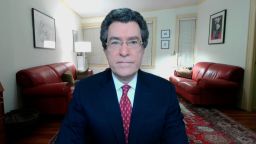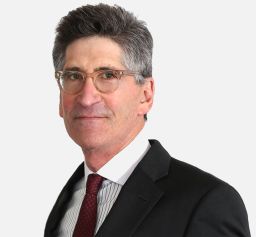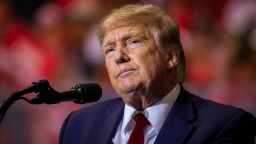Editor’s Note: Norman Eisen is a senior fellow at Brookings, a CNN legal analyst and the author of “Trump on Trial,” a guide to the January 6 committee hearings. Dennis Aftergut, a former federal prosecutor, is currently of counsel to Lawyers Defending American Democracy. The views expressed in this commentary are their own. Read more opinion at CNN.
With Steve Bannon set to go on trial July 18 for criminal contempt over defying a congressional subpoena, he is now trying a desperate ploy in connivance with his ally Donald Trump. The former President has sent a letter waiving the purported executive privilege that Bannon cited in stiffing the January 6 committee in October.


The committee, the court and the public should not fall for the withdrawal of a nonexistent privilege – and so far, they don’t seem to be doing so. The Bannon trial must proceed.
Bannon was Trump’s chief strategist in the first months of the administration until Trump fired him in August 2017. Bannon continued supporting Trump outside the White House to the point that Trump pardoned Bannon in January 2021. (Bannon had been indicted on charges he defrauded donors as part of a fundraising campaign purportedly aimed at supporting Trump’s border wall, but he hadn’t gone to trial yet. He had pleaded not guilty.)
Bannon reportedly was deeply involved with Trump in the events leading up to January 6, 2021. According to “Peril,” Bob Woodward and Robert Costa’s book on Trump, on December 30, 2020, Bannon called Trump, who was at Mar-a-Lago, and said the President needed to get back to Washington and focus his efforts on January 6. Bannon’s vision was to “kill the Biden presidency in the crib” by clouding the election certification process and raising questions about Joe Biden’s election.
During the week of January 6, Bannon occasionally joined Rudy Giuliani and lawyer John Eastman in the Willard hotel “command center,” The Washington Post reported, set up to assist with overturning the election results. Then, on January 5, Bannon told his “War Room” podcast audience that “all hell is going to break loose tomorrow.”
No wonder the January 6 committee subpoenaed him. After he failed to appear on October 14, 2021, Congress referred him to the Justice Department for prosecution. He was indicted on two counts of contempt of Congress four weeks later. He faces up to a year of imprisonment and up to a $100,000 fine on each count. He has pleaded not guilty.
That brings us to the present moment. Trump wrote Bannon a July 9 letter stating that he was withdrawing his original invocation of executive privilege, having “watched how unfairly you and others have been treated.” Bannon’s attorney quickly wrote the committee with his client’s offer “to testify at your public hearing.”
This new and carefully staged Trump-Bannon dance is pure pretext. Even if Trump could have invoked the privilege as to some others (and that is doubtful), it would not have applied to Bannon.
At the time of the events the committee wants to ask about in late 2020 and early 2021, Bannon had long since left the government. Perhaps that is why – according to Justin Clark, Trump’s own lawyer – Trump did not try to assert executive privilege back when it mattered, according to the Justice Department.
Bannon cannot now mitigate or undo his October defiance based upon Trump’s after-the-fact letter. “Purging” of criminal contempt – that is, tardy compliance – cannot block a prosecution once commenced. As prosecutors explain in their new motion, the primary aim of a criminal contempt action is to vindicate the court’s authority and to punish for fully completed disobedience.
Think about it: If contempt defendants could always shut down their prosecution by changing their minds months after a wrongdoing and on the eve of trial, subpoenas would be a joke, and investigations would be a shambles. No one would ever comply with a subpoena in a timely fashion.
According to The Washington Post, US District Judge Carl Nichols, a Trump appointee, seems to have crippled that strategy by ruling that “Bannon could not argue that he thought he was protected by executive privilege.” The Justice Department had objected to Bannon’s last-minute effort to delay the trial, revealing testimony from Trump lawyer Clark that the former President had not even asserted the privilege concerning Bannon back when he was supposed to testify and turn over documents.
That doesn’t mean, however, that the committee should ignore Bannon. It should test his offer. We’ll soon know if Bannon is merely offering “public hearing” testimony on his own terms the way that GOP Rep. Mo Brooks of Alabama offered last month without a willingness to be deposed in advance. The committee should reject as a nonstarter any offer that excludes an advance deposition.
Rep. Zoe Lofgren, a California Democrat on the committee, has indicated as much. No sensible congressional investigation wastes the public’s time on witnesses without a thorough pre-hearing vetting of what they have to say.
Negotiating to an impasse on his testimony may be just what Bannon wants here. He can then try to exploit the public’s limited understanding of why depositions are necessary – and loudly broadcast that the committee never wanted to hear from him in the first place.
Of course, if Bannon agrees to be deposed without any conditions, that is a different matter altogether. But the committee should not agree in advance to make any recommendation for leniency to the Justice Department or court unless Bannon tells the whole truth.
In all likelihood, and based on his prior statements about the election, that is not Bannon’s intent.
We hope to be proven wrong, but if his deposition happens, he will almost certainly fill it with election denial and other extraneous defenses that Trump would love to insert into the proceedings.
When the committee refuses to give him a public forum to air those defenses, Bannon would bash it as disinterested in the truth. That would succeed in providing Bannon and Trump with something new to complain about – to try to muddy up both the committee hearings and the former’s trial.
Nevertheless, the committee should now negotiate with Bannon to determine whether, remote a prospect as it seems, he is actually ready to provide useful information. At the same time, the prosecutors and the court must keep moving forward resolutely if – as is likely – Bannon and his patron are playing games. Truth is the only answer to these kinds of manipulations.


